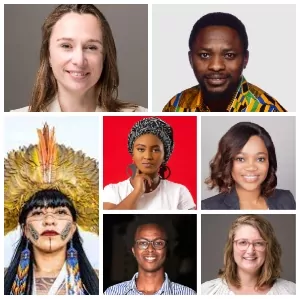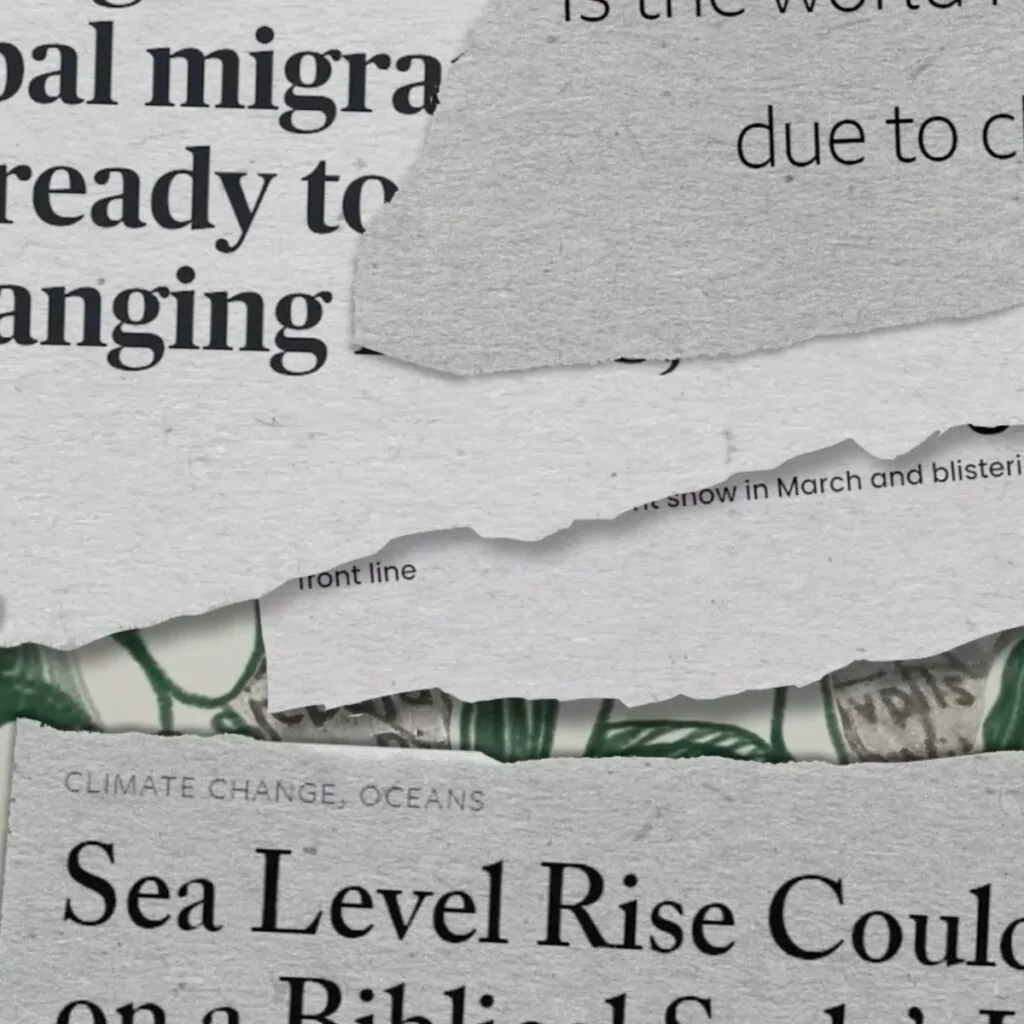Loss and damage: it’s time to make a decision!
Over the last few weeks, we’ve seen gut-wrenching stories of people living through climate disasters. We’ve seen articles explaining how these events are connected to climate change. And we’ve seen people from all over the world – like in Germany, South Korea and Uganda – calling out the fossil fuel industry to stop sustaining a financial system that puts our lives in danger.
In this edition, we invite you to meet Pakistani climate activist Ayisha Siddiqa as she explains the impacts climate change is having right now on her home country and the world. Going beyond science, art, journalism and activism, she gets straight to the point: people’s lives are at stake, and ignoring loss and damage is no longer a choice.
You’ll also get a peek into the life of Rahmina Paulette from Kenya, who participated in the Global Strike organised by Fridays For Future that took place on September 23rd. Thousands of people around the world took to the streets with a common demand: to ask world leaders to prioritise people over profit and to finance loss and damage in order to protect those in vulnerable and underserved situations.
And as usual, we’ve also included recommendations for books, podcasts and online events that might be of interest to you and your friends!
Happy reading!
From,
The Livism Team
The floods in Pakistan demonstrate why we need loss and damage finance, and why it matters to the whole world
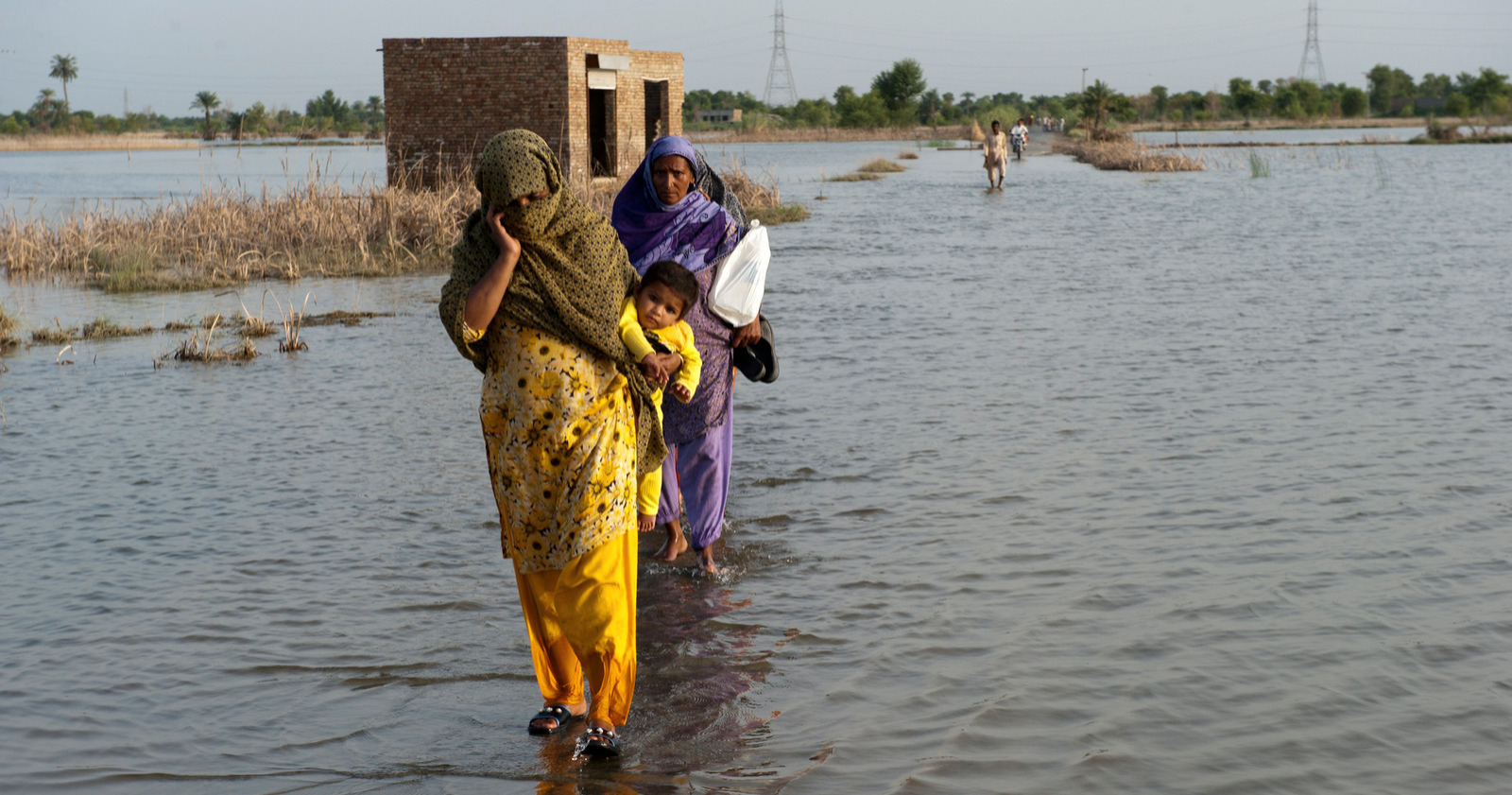

© ADB / Gerhard JˆrÈn
The Cambridge Dictionary defines loss as the state of no longer having something, or as much of something as before. It also defines damage as the action of harming or spoiling something. But what exactly does it mean in the context of the climate crisis we are living in? Explaining the complexity of this issue requires more than a short definition. The amount and depth of all the loss and damage caused by the climate crisis is immeasurable and indefinable. And to make matters worse: the countries and populations that are now experiencing the worst consequences are those that have contributed the least to bringing us to this point.
To explain it, I’ll ask you to picture the current situation in Pakistan: in April we experienced intense heat waves that caused our glacial ice to melt and, in June, we had flash flooding and rivers bursting in Gilgit. More recently, the monsoon rains combined with the intense heat caused flash flooding and multiple rivers to flood, leaving one-third of the country underwater. As a consequence, 33 million people have been displaced – 16 million of whom are children.
Because of the flooding, homes are being destroyed, people’s livelihoods are being destroyed. In addition to that, there’s a massive health crisis coming our way and the country is not financially prepared. Mosquitoes are gathering on the sitting water and bringing diseases like malaria, dengue and cholera. The hospitals are overwhelmed and people don’t even have their homes, let alone money, so they can’t afford to go to the hospital. And in the midst of all of this, we have had to fundraise for international aid because we didn’t have enough supplies to provide people with food and water.
And it’s going to get worse, particularly because Pakistan’s GDP depends on crops like cotton, sugar cane and rice. Thirty million acres of these crops are ruined. People will go hungry and we can expect mass unemployment and inflation. This doesn’t affect only Pakistan: we export a great deal of the world’s rice and grain and cotton, and so it will become expensive for the rest of the world as well.
The bitterly ironic thing is that Global South countries, which are enduring the worst impacts, haven’t contributed nearly as much to historic global greenhouse gas emissions as rich countries in the Global North. I am shouting loudly about the situation in Pakistan, not just to share the stories of the people on the ground, but to remind everybody that this is connected to all of us. What happens in the Global South eventually affects the Global North – when the Global North can no longer rely on the Global South to feed it, clothe it, quench its thirst, what will it do?
We live in an interconnected economic system, where we depend deeply on each other. Therefore, loss and damage finance is not charity or aid, it’s a protection measure to keep all of us alive. When Global North politicians are asked if they think the Global South has contributed less to the climate crisis, they readily admit it . When they are asked if they will help prevent further damage, they deny responsibility.
We, as a society, need to acknowledge that the money does exist, that there is more than enough to circulate. And we need to make sure that people who experience disasters don’t have to suffer far beyond when the disasters hit.
Spotlight on: Rahmina Paulette
Rahmina Paulette is a 16 year old climate and environmental activist from Kenya and a fellow activist at Fridays For Future. She runs the Kisumu Environmental Champions, an organisation that organises clean-ups, tree planting, climate advocacy, environmental education, and many more activities that help in conserving the environment.
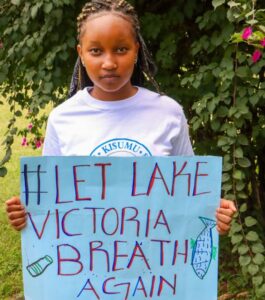

When did you start noticing the effects of climate change?
I grew up on the shores of Lake Victoria. The lake regularly floods its banks and the surrounding houses, but it is becoming more common now due to climate change. For this reason, I became involved in environmental protection at an early age and have kept fighting for the preservation of the planet since. But the trigger that led me to commit to this cause was the period of COVID-19. Not going to school anymore, I dedicated my time to useful actions and created the ‘Kisumu Environmental Champions‘ movement, a group of teenagers who support environmental and wildlife conservation through a variety of actions, and who raise awareness about climate change.
Can you tell us how your experience this year participating in the Global Climate Strike?
This year, I organised the Global Climate Strike in my community from Lake Victoria in Kisumu. The main theme was loss and damage finance. And it was very important because we have been on the frontline of the climate crisis, the destruction we experience is way beyond repair unless we get the finances to tackle the issues. We protested with signs and even on a boat out in Lake Victoria.
Lake Victoria is one of the most fragile ecosystems in the world. It has served many east Africans. But right now, water levels are rising and the subsequent rapid growth in a plant called water hyacinth directly affects my community as well as aquatic life. This is why I demand change and ask world leaders to take up action and support campaigns such as #letlakevictoriabreathagain and loss and damage finance.
What is the “Let Victoria Breath Again Campaign” about?
This project was developed to create awareness of the importance of the lake and to promote its conservation. The campaign also facilitates climate change education on proper management of waste, particularly plastic waste. We also run environmental education and conservation initiatives, as well as promoting tree planting in schools and communities which are vulnerable to the adverse effects of climate change.


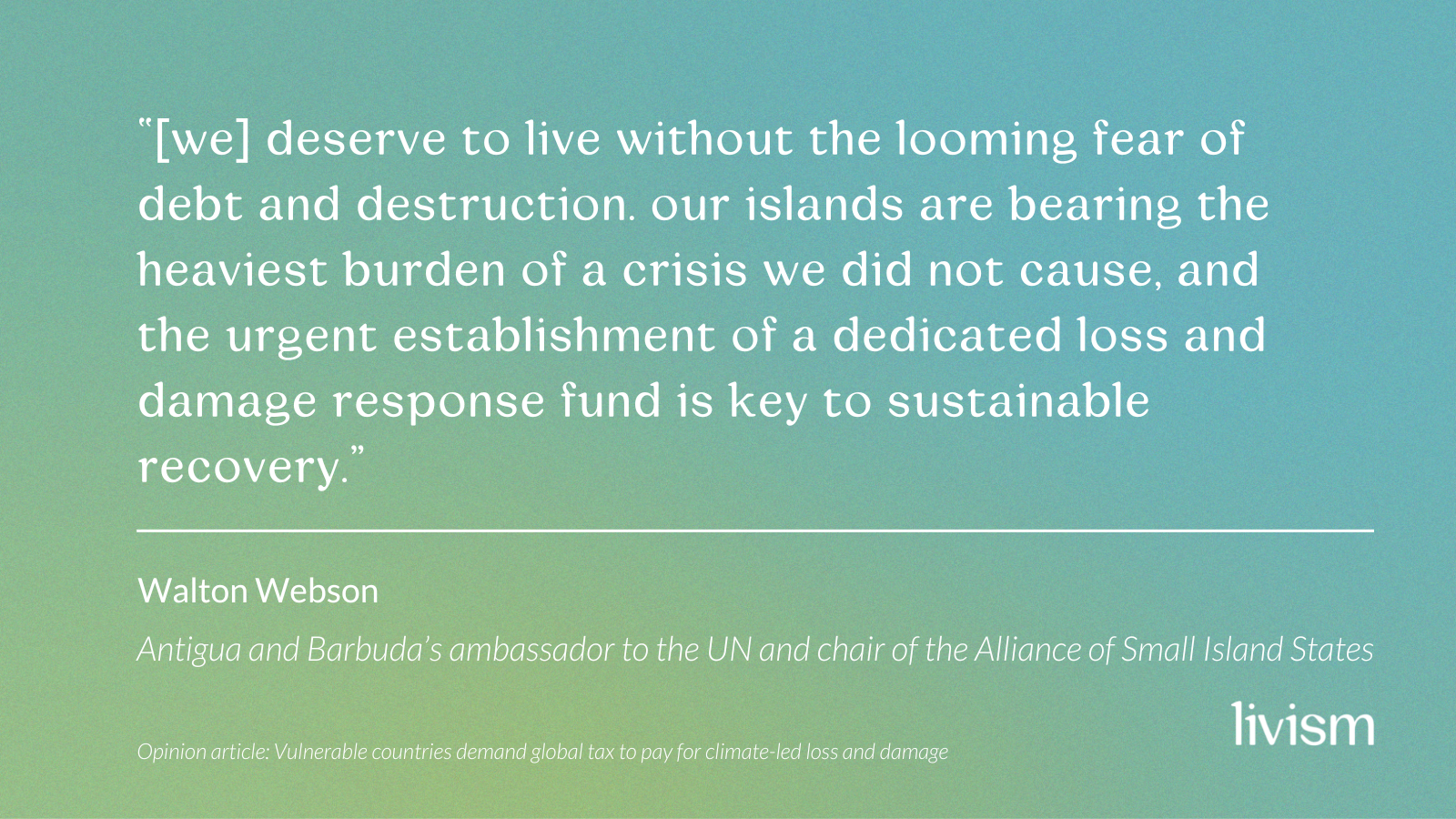

Inspiring activism
Five hundred advertising sites have been hacked with satirical airline adverts in 15 European cities in the latest Brandalism action. In a massive coordinated subvertising action across the UK, Netherlands, Spain, Italy, Portugal, Belgium and France, anonymous Brandalism crews hijacked corporate advertising spaces, replacing adverts with satirical artworks denouncing the role of aviation industry advertising in the climate crisis.
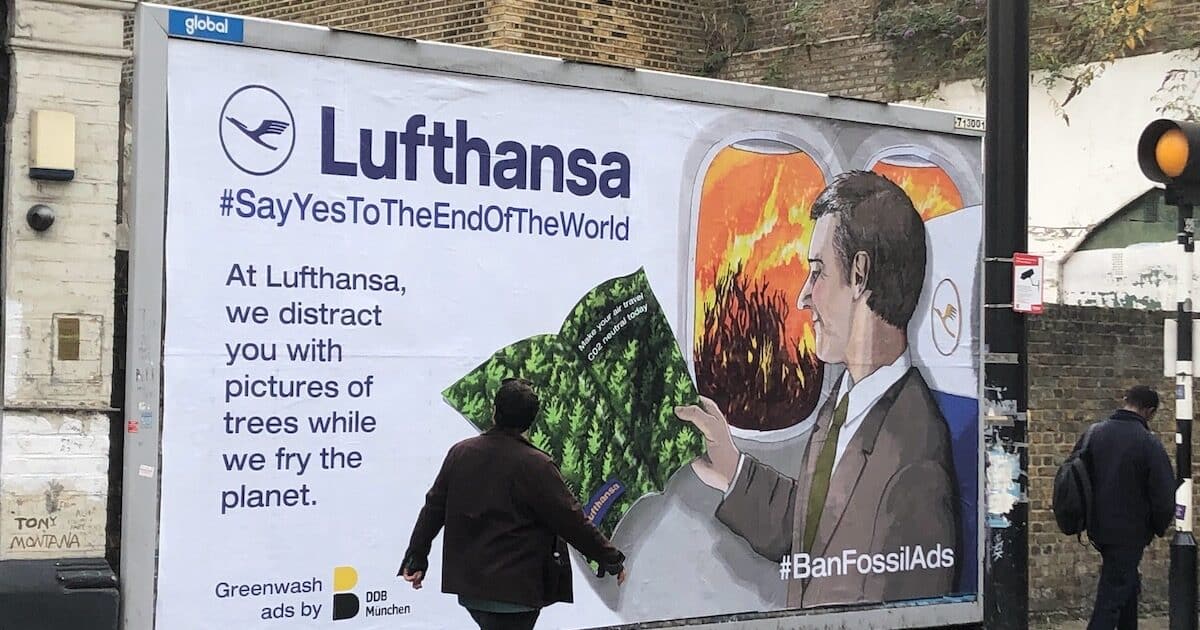

In case you missed it
Where climate meets the internet: a great content library connecting climate to a diversity of topics, from climate comedy to climate tech.
An inspiring interview with the writer Mike Davis: “What keeps us going, ultimately, is our love for each other, and our refusal to bow our heads, to accept the verdict”.
Enough is enough: in this article by Atmos, Ukrainian climate activists call for a green revolution to tackle the climate crisis connected to fossil-fueled conflicts and wars.
In Letters to Our Children, Extinction Rebellion Families asks a simple question: what will you say to the children you love about your hopes and fears as the climate crisis intensifies?
In her letter to President William Ruto, Elizabeth Wathuti demands the elevation of the roles of women and youth in climate action.
Climate change has likely increased the intense rainfall that flooded large parts of Pakistan, as climate scientists found out.
Denmark became the first central government of a developed country to propose funding devoted to ‘loss and damage’.
Across Pakistan, we see the climate inequality that divides the rich, carbon-emitting world from the poorer countries that emit little but bear the consequences of those that do.
A new zine called Extinção? uses photography and poetry to remind us of the mass extinctions that the Earth has experienced so far and help warn us about the impending one.
The Federal Court of Australia has overturned Santos’ approval to drill for gas in the sea north of the Tiwi Islands – a landmark decision that could affect all offshore oil and gas projects.
Recommendations
What we’re listening to
-
Emergence Magazine Podcast
The Emergence Magazine Podcast centres Indigenous perspectives. Episodes either feature an interview by editor-in-chief Emmanuel Vaughan-Lee or essays read by activists, authors, philosophers and scientists. Recent essays include a piece on the forests that surround Mount Kenya, a meditation on the environmental wisdom of druidry, and a profoundly beautiful reflection on alternative economic models by the author and biologist Robin Wall Kimmerer.
-
For The Wild
A podcast that brings together thought leaders and visionaries of our time to uplift a multitude of perspectives, to amplify grassroot voices, and to tell stories that would otherwise disappear in mainstream media. Key topics include the struggle to protect wild nature, to promote ecological renewal and resistance, and to heal from the disconnection furthered by consumer culture and human supremacy.
What we’re attending
-
Positive Tipping Points in Practice: Climate Justice
When? Tue, October 18, 2022 18:30 – 20:30 BST
Where? OnlineWe’re already seeing disproportionate impacts of the climate crisis across the world and, without a just and fair response, this inequity will dramatically increase. How can climate justice be embedded within the way we work and live? What is being done already in existing systems? Join this workshop to find out!
-
Diversifying Power: Why We Need Antiracist, Feminist Leadership on Climate
When? Wed, October 5, 2022 09:00 – 10:00 PDT
Where? OnlineCities@Tufts organises a conversation with Professor Jennie C. Stephens, an internationally recognised expert on renewable energy transformation, energy justice, climate justice, energy democracy, and gender and race in energy and climate. In her words, the key to effectively addressing the climate crisis is to diversify leadership, redistribute wealth and power, and move beyond technocratic solutions so that feminist, antiracist priorities are at the core of all policy.
What we’re reading
-
How Beautiful We Were | Imbolo Mbue
Told through the perspective of a generation of children and the family of a girl named Thula who grows up to become a revolutionary, How Beautiful We Were is a masterful exploration of what happens when the reckless drive for profit, coupled with the ghost of colonialism, comes up against one community’s determination to hold onto its ancestral land and a young woman’s willingness to sacrifice everything for the sake of her people’s freedom.
-
The Nutmeg’s Curse: Parables for a Planet in Crisis | Amitav Ghosh
A powerful work of history, essay, testimony, and polemic, Amitav Ghosh’s book traces our contemporary planetary crisis back to the discovery of the New World and the sea route to the Indian Ocean. The Nutmeg’s Curse argues that the dynamics of climate change today are rooted in a centuries-old geopolitical order constructed by Western colonialism. At the centre of Ghosh’s narrative is the now-ubiquitous spice nutmeg. The history of the nutmeg is one of conquest and exploitation—of both human life and the natural environment.


